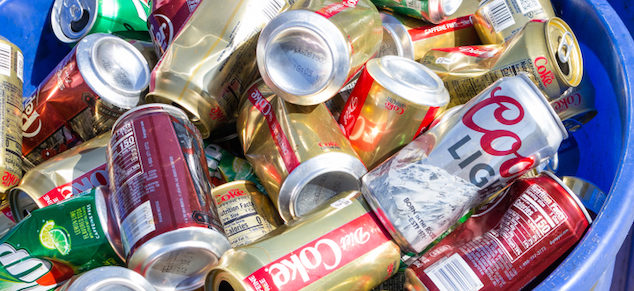Opinion
Metal recycling: State tries end run around cities and counties
 Metal scrap awaiting recycling. (Photo: TonelsonProductions, via Shutterstock)
Metal scrap awaiting recycling. (Photo: TonelsonProductions, via Shutterstock)As the former executive director of the California State Association of Counties, I have had a birds-eye seat to observe that what the state soweth, local governments often reapeth.
Whether through legislation or regulation, Sacramento takes too many actions that appear oblivious to the downstream effect on cities and counties.
Now, the state is at it again.
This time, the Department of Toxic Substances Control (DTSC) is attempting, in an end-run around the normal regulatory process, to impose “emergency” harsh and unjustified new rules on the metal-recycling industry — the one aspect of California’s troubled recycling sector that is still going strong. Why? Because they believe they can, I guess.
The regulatory regime that DTSC is pursuing is so onerous and uneconomical, that existing metal-recycling facilities may be forced to cease operating.
One hugely important civic function that is generally under the control of the counties is public landfills. But under state law, it is illegal for landfills to accept scrap metal – and even if they could, all the landfills in California combined could not accommodate the huge volume of scrap metal generated in the state.
California businesses and people produce tons of scrap metal every day – millions of tons per year. Currently, the overwhelming share of this scrap metal is processed by metal recyclers, turning these mountains of scrap into recyclable materials that are then made into new consumer products.
But the regulatory regime that DTSC is pursuing is so onerous and uneconomical, that existing metal-recycling facilities may be forced to cease operating.
If that happens, where will these tons and tons of material go? They will begin to accumulate in huge quantities, increasing urban blight and creating eyesores, and causing potential threats to health and safety by being abandoned in public places.
State government should be in the business of solving problems, not creating new ones.
Californians would experience the effects resulting from a geometric increase in “midnight dumping” along roadsides and in empty fields. This will be a particularly telling problem in low-income and minority neighborhoods, which already endure more than their share of cast-offs.
Is the state going to step in and remove these tons of discarded scrap when they start showing up along streets, in alleys and vacant lots in our cities, and in fields and beside highways in our rural areas? Not likely.
The state can’t even keep our freeways and state highways clear of light litter such as plastic bags, paper cups and cardboard boxes. How is the state going to remove tons of “heavy metal”? The fact is, it won’t. And who will be left to clean up the mess? Cities and counties, again.
State government should be in the business of solving problems, not creating new ones. The negative impact of unduly burdensome rules and regulations on the recycling of bottles, cans and paper is already threatening to end the recycling of consumer items altogether.
If DTSC gets its way with metal recyclers, the situation will be even worse, and will unduly impact our cities and counties, adding major headaches and expense to already hard-pressed localities struggling to deal with the pandemic and its effect on revenues.
The metal-recycling industry is already extensively regulated by a wide array of federal, state, regional and local authorities, including regional water boards, regional air districts, local fire departments and other municipal entities that manage and regulate land use.
Sticking the metal-recycling facilities with unnecessary and unworkable regulations could kill an industry that is vital to keeping our environment clean. Attempting to do it with five days’ notice under a false claim of an emergency is irresponsible and reckless.
The state Office of Administrative Law should summarily reject this blatant attempt by DTSC to circumvent the normal rule-making process.
—
Editor’s Note: Matt Cate, an attorney and consultant, is the former executive director of the California State Association of Counties, and headed the California Department of Corrections and Rehabilitation under Govs. Jerry Brown and Arnold Schwarzenegger.
Want to see more stories like this? Sign up for The Roundup, the free daily newsletter about California politics from the editors of Capitol Weekly. Stay up to date on the news you need to know.
Sign up below, then look for a confirmation email in your inbox.
